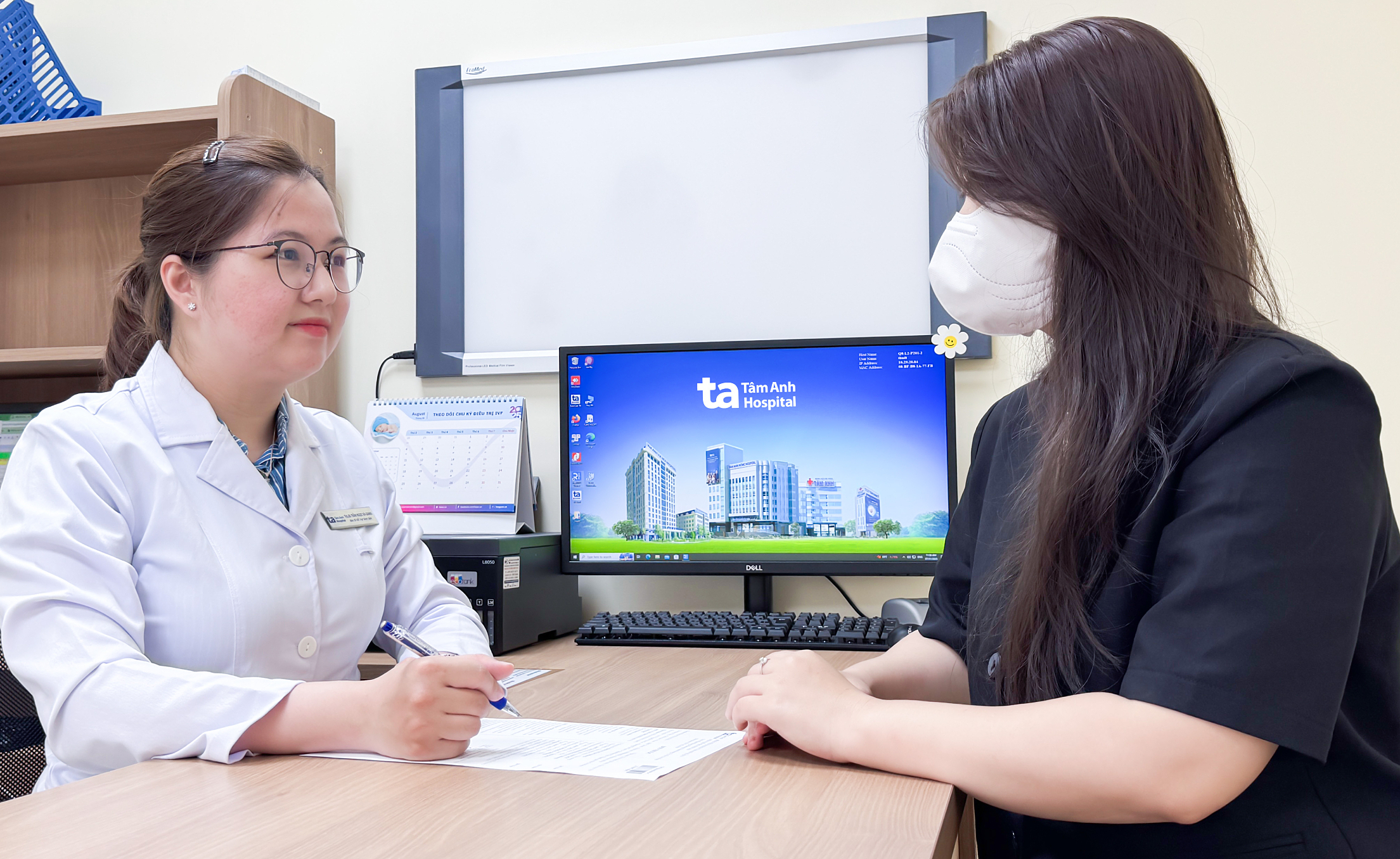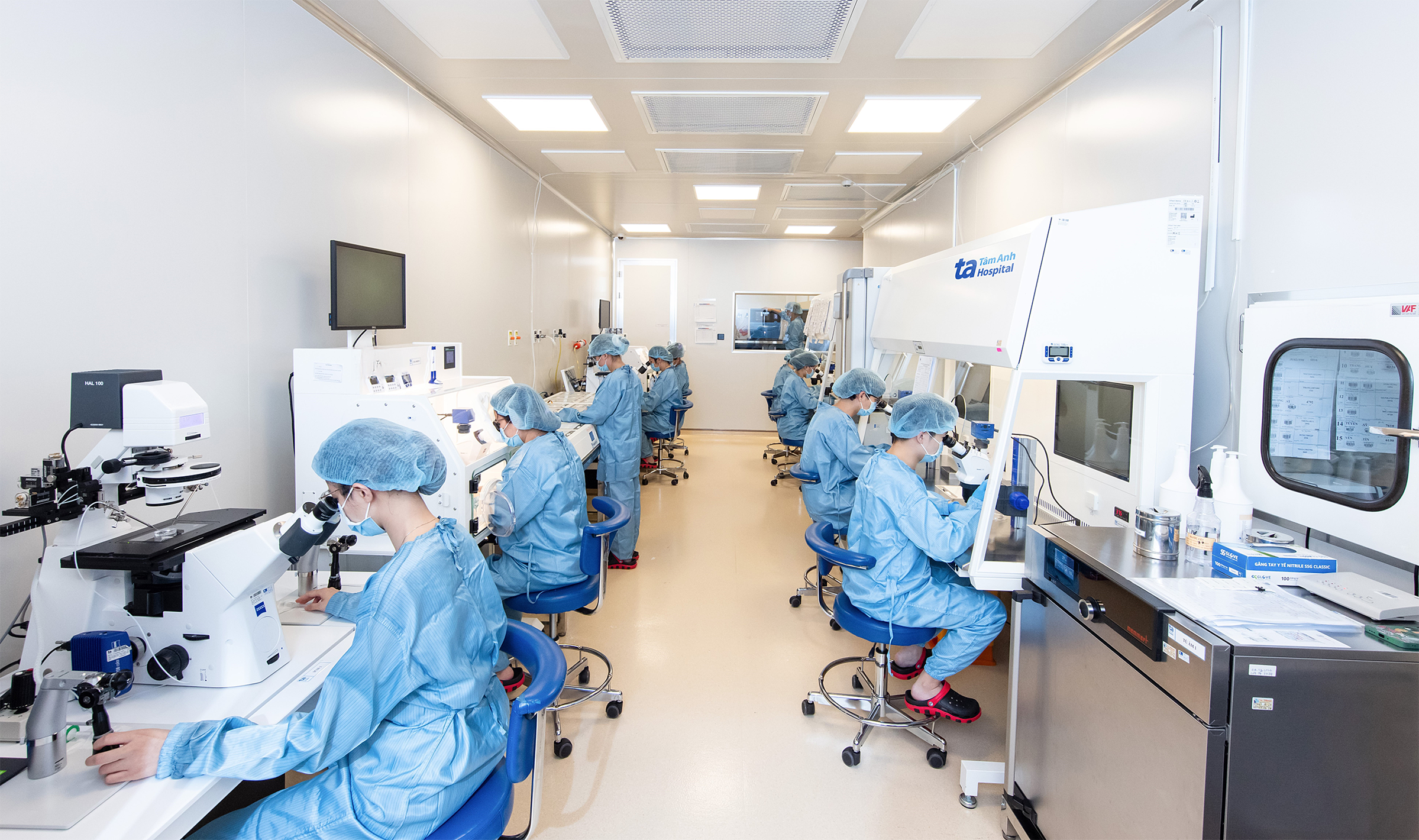"I struggled for a long time with fear and shame," Yen said, worried about raising a child without a father. She was surprised to find her entire family supportive of her decision.
At the Assisted Reproduction Department of Tam Anh General Hospital - District 8 (IVF Tam Anh District 8), Dr. Tran Ngoc Ha Giang guided her through the process of finding a sperm donor, exchanging samples, and receiving an anonymous sample for IVF.
Regulations require sperm donors to be at least 20 years old, healthy, free of genetic and mental illnesses, HIV-negative, and have a satisfactory semen analysis. Both the donor and recipient receive counseling about their rights and responsibilities. If the donor is married, their spouse must also participate.
 |
Dr. Giang counsels a single woman about the IVF process. Photo illustration: Hoai Thuong |
Yen, having no brothers, initially asked a close friend to be a donor. He passed the health screening, but his wife later refused, fearing the anonymity of the exchange and the potential, however small, for consanguineous marriage in the future. Despite the doctor's reassurances, the wife's concerns halted the process. Yen's request to another friend was also declined before a single friend agreed to donate.
After three months of screening, the sperm sample was deposited in the sperm bank for exchange, and Yen received an anonymous sample. The identities of the donor, recipient, and child are kept confidential.
In early June, Dr. Giang developed an ovarian stimulation protocol for Yen. Eleven mature eggs were retrieved. An embryologist thawed the donor sperm, injected it into the egg cytoplasm, and cultivated six high-quality day-5 embryos. Yen's first embryo transfer was successful, and she is now pregnant, ready to become a mother at 36.
"Being pregnant, giving birth, and raising a child alone will certainly be challenging, but I believe good things will come," Yen said.
 |
The ISO5 lab-within-a-lab system at IVF Tam Anh. Photo: Nguyen Thang |
According to Government Decree 207, effective 1/10, single women can access assisted reproductive technologies, including egg freezing and donor sperm IVF. Previously, these techniques required a doctor's recommendation. "This more open legal framework empowers women to become mothers without medical justification, aligning with individual needs and challenging social stigmas," Dr. Giang said.
Many women now choose to be single mothers for various reasons. The assisted reproduction process can be challenging, including finding a suitable sperm donor, dealing with substandard sperm samples, and facing age-related decline in egg quantity and quality. For LGBT individuals who have undergone long-term female-to-male hormone therapy, the success rate may be lower.
Dr. Giang recommends that women planning to marry or have children later in life freeze their eggs before the age of 35 to preserve their reproductive health and control their ideal birthing timeline. Women considering single motherhood should seek consultation and treatment before 35 to increase their chances of success. LGBT individuals should freeze their eggs before starting hormone therapy and avoid hysterectomies to maintain the possibility of having biological children.
Hoai Thuong
*The patient's name has been changed.












